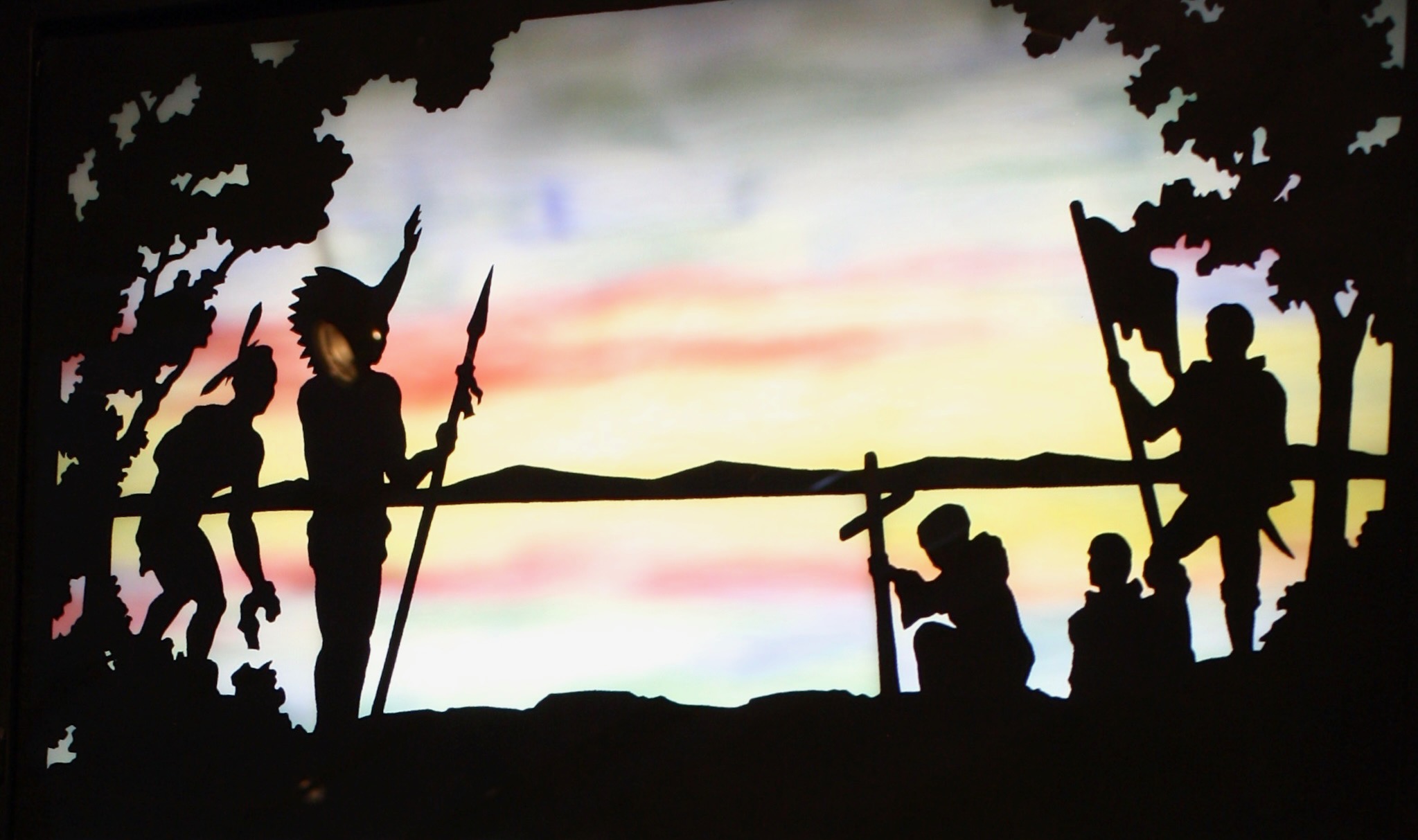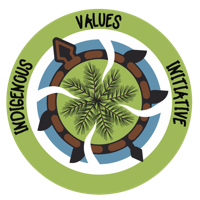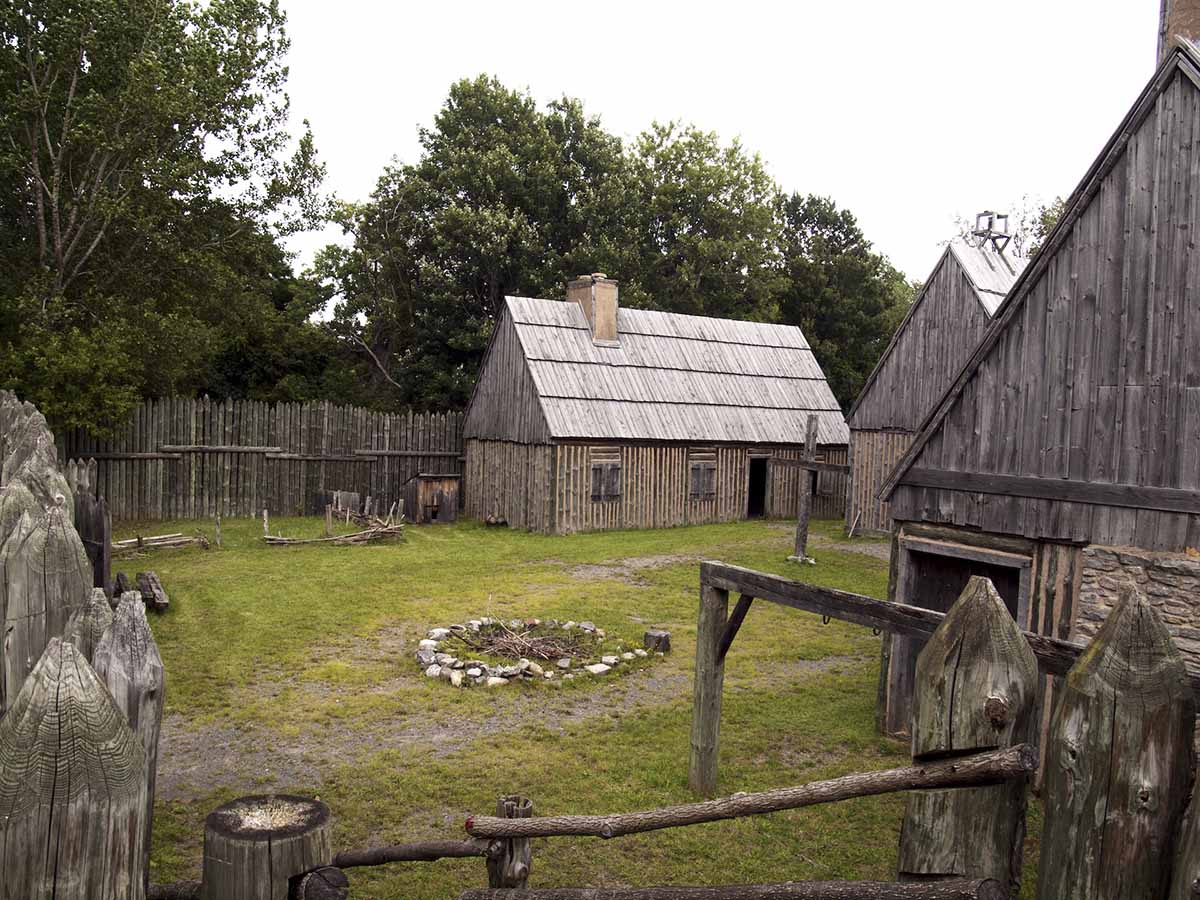Ten Religious Themes of the Doctrine of Christian Discovery (DoCD) that Contrast with Indigenous Values

By Philip P. Arnold and Sandra L. Bigtree
With issuance of 15th century Papal Bulls known as the Doctrine of Christian Discovery, religion has been used all over the world as a weapon against Indigenous Peoples and the land. This globalized aggressive and destructive use of religion began here with the Vatican’s justification for Portugal and Spain to raid West Africa and the Americas—resulting in the near annihilation of traditions, ecosystems and human life. Today, this religious framework has been codified into law and utilized by multinational corporations to seize Indigenous lands and extract resources for profit. Religion, therefore, is relevant today as foundational to social justice struggles and environmental devastation. To counteract this trajectory into the world, we call for a shift away from religion to that of Indigenous values as a way of understanding and aligning ourselves with the Earth. The Earth is the material and spiritual basis of all life and what constitutes our human survival. The opposition between religion and Indigenous values was initiated through the DoCD. The Indigenous Peoples of the Americas were often gracious in welcoming newcomers until they realized that they had come to take possession of their bodies and lands.
- Assumed Superiority of Christianity (Christian Hegemony). Christian explorers who encountered non-Christians were to enslave their bodies, seize their worldly goods and their lands (referred to as terra nullius, or “empty lands”) deeding all possessions to the Vatican and sponsoring Monarchs. This Christian hegemony was developed in what is now known as Europe but expanded with explorers travelling to foreign lands. Christian hegemony was the driving force behind settler-colonization—it is also foundational to the ideology of white supremacy.
- Indigenous values response: Human beings are not in charge of the world, but part of its regenerative life. The Earth provides everything we need—we are identified by the land and our traditions maintain that proper relationship.
- Creation of Christian Empire (Christendom) drives the need for material riches and fires the discoverer’s imagination toward the unsatiated acquisition of wealth. Complete domination of the non-Christian world—both human and non-human. Christianity joined with the militaristic Roman Empire in the 4th century with Constantine. The Crusades, which began in the 11th century, was an attempt by the Vatican and Christian Monarchs to remove Muslims from the ‘Holy Land.’ Initiated in the 15th century and justified by the Vatican during the Age of Discovery, militarism was essentially a continuation of the Crusades which resulted in the Inquisition, the War on Witches and the Reconquest of the Iberian Peninsula.
- Indigenous values response: Material riches are meant to be shared, in the tradition of the potlatch and “One Bowl, One Spoon” wampum. Gifts of the Earth are intrinsically there for all beings and meant to be shared.
- Patriarchy and hierarchy. Popes, Kings, aristocrats are at the top of the “Great Chain of Being.” Women, children, animals and other non-human beings fall under their domination. White Christian Supremacy evolved into White Anglo-Saxon Protestants (WASPs) from the 16th century onward.
- Indigenous values response: The Haudenosaunee follow matrilineal clans because women are responsible for life on this Earth, which is female. All beings have their respective responsibilities—there is no hierarchy.
- Apocalyptic thinking eagerly anticipates the end of the world, the return of Jesus Christ, and the rapture—where the chosen people return to a heavenly paradise. This Christian message connects with millennialism, and what drives the fanaticism of explorers, missionaries, ‘end of the world’ thinking, etc. Today, this paranoid thinking about how the world ends drives global Capitalism and consumerism.
- Indigenous values response: if there is to be an end of the world it will not come with a promise of a new world. It is our responsibility to keep this Creation alive for seven generations into the future.
- “Original Sin,” establishes the ‘natural’ fallenness of human beings in the world, being born in sin and what frames the urgent need for salvation, whether alive or dead (conversion after death). The world is sinful without Christ’s salvation, and only through human intervention is the world made suitable for Christ’s return. With God as Otiosus (obscured and removed from the world) human beings are required to become the agents of fulfilling God’s plan on Earth.
- Indigenous values response: We belong to the earth and therefore all beings are constituted by the same fundamental spiritual and material reality that is regenerative and freely available to those who live without domination of others. If personal salvation is the only way out of the restraint of having been born in sin, how can anyone feel anything but dominated?
- Reconquest of the Holy Land. Driven to reattain direct relationship at the site of the hierophany (where the sacred manifested in the world) led to a violent Crusade against Muslims who inhabited the Holy Land. Jerusalem is where Christians could directly appeal to their God, who was removed from the world (Deus Otiosus), mediated by Jesus Christ’s death and resurrection after having appeared to save the world. European Christianity, therefore, is out of place (utopian) and outside immediate relationship with the sacred, but it is Christianity that gave religious justification and authority to the Pope and all Christian Monarchies. Power is legitimated by removing Muslims, and other non-Christians from the Holy Land. Complete Vatican and Royal authority rests on the hierarchy of human relationships under a transcendent and displaced God.
- Indigenous values response: we live every day in close proximity to the hierophany (manifestation of the sacred), in the water, in the air we breath, and in the regenerative lifeways of all living beings who constitute our very existence. To the earth and all living beings we say, Nya weñha Skä·noñh (Thank you for being well) because peace and wellness depend on living in proper relationship with the natural world.
- Biblical authority and literalism. The Christian Bible was compiled in the 4th century and has been viewed as the ultimate authority. In Protestant Christianity (16th century onward) it is often understood to be the unfiltered word of God. The biblical text has been driven by a movement toward utopia (Sir Thomas More’s book by the same name). “No place,” or the disengagement with the meaning of place, is what defines American Christian Millennialism, and its urgent determination to prepare for the end of the world, as with ideas like Manifest Destiny and the Great Awakenings.
- Indigenous values response: “oral traditions” have been reliable in maintaining our proper relationships with an everchanging natural world for hundreds of generations because we live our traditions every day through our, wampum belts, ceremonies, language, music, dancing, clothing, foods, medicines, clans, etc.
- Presence of ultimate Evil in the world (Devil, Satan, Lucifer, etc.) that directly opposes the good established from the salvation of Christ’s sacrifice. There is a drama between the forces of Good and Evil being played out in the world. The terror of ultimate evil and hell motivates the drive toward personal salvation. The cosmic duality of Good v Evil locked in an inexorable battle which can only be resolved after the world has ended and good triumphs over evil.
- Indigenous values response: There are interactions of opposing forces in the world—life and death, sky and earth, light and dark—exchanges that are necessary in creating and recreating the world and maintaining proper relationships. For the Haudenosaunee, through the interactions of the Creator Twins, the Earth was made.
- Individual or personal salvation is foundational to individualism and the understanding of the Self as a discrete being which is separate from the world. It is this Self that requires salvation by the grace of God through the sacrifice of Jesus Christ.
- Indigenous values response: the individual is an intersection of vital forces composed of all the beings of the world. Individuals exist as a web of material interactions–including the living and the dead.
- Creation of the Global Monetary Economy (enacted by 11th century monastics). Acquisition of material goods through the slave trade and extractive industries is exemplified by the commodification of the world which has aligned and unified the Christian Empire. Wealth is proof that the individual has been blessed by God.
- Indigenous values response: our ceremonies are based on a gift exchange economy that moves between different beings. Gratitude for these gifts of life orient all ceremonies. The circulation of gifts to and from those non-human beings makes all life possible.
SUGGESTED CITATION
Indigenous Values Initiative, "Ten Religious Themes of the Doctrine of Christian Discovery (DoCD) that Contrast with Indigenous Values," Doctrine of Discovery Project (26 September 2022), https://doctrineofdiscovery.org/10-religous-dimensions/.
Download citation formats:
Share on
X Facebook LinkedIn BlueskyDonate today!
Open Access educational resources cost money to produce. Please join the growing number of people supporting The Doctrine of Discovery so we can sustain this work. Please give today.

